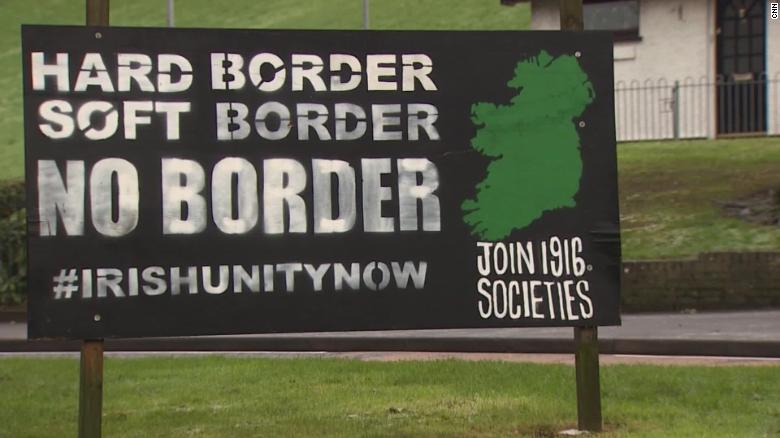25 days until ‘Brexit day.’ Here’s how it could play out

It was greeted with cautious optimism from hardliners within his own Conservative party, whose support will be crucial. But many European officials have dismissed Johnson’s proposals as a non-starter. With just over three weeks to go until the latest Brexit deadline of October 31, time is running out for Britain and the EU to negotiate a new agreement. The next summit of EU leaders is on October 17 and 18, and if anything is to be rubber-stamped at that meeting, the details will need to be nailed down well in advance.If the PM doesn’t get a deal by October 19, he is obliged by law to seek a new extension to the Brexit process. But Johnson has long maintained that he would take the UK out of the European Union on October 31 “do or die.”More than three years after the UK voted to leave the EU, and six months after it was first due to leave, a reckoning is fast approaching. Here are three ways the next three weeks could pan out.
Brexit happens in
—
—
—
Can Johnson get a deal?The Prime Minister’s new offer to Brussels centers on changes to the controversial “Irish backstop” — the section of the previously negotiated Withdrawal Agreement that aims to prevent the return of border posts on the frontier between Northern Ireland and the Republic of Ireland. That’s been a red line for the EU since Brexit negotiations began.Johnson concedes that under his new plan, some customs checks will be needed after Brexit, but suggested these can be done on a “decentralized basis.” The plan has received a cool reaction from the European side, but at least they now have something to talk about. The trouble is, it’s hard to see the talks going far.Officials in Dublin have said the proposals are incompatible with the promise to avoid any border on the island of Ireland, expressing concerns it would threaten the integrity of the European single market, and the peace that has pertained since the Good Friday Agreement that ended years of sectarian conflict in the region.The European Parliament, which has a veto on any Brexit deal as it needs to ratify the treaty, is also unimpressed. The Parliament’s Brexit Steering Group issued a statement Thursday saying the UK proposals “do not match even remotely what was agreed as a sufficient compromise.”Brigid Fowler, a senior researcher at the Hansard Society, says it seems unlikely — but not impossible — that the UK and EU will have enough time to reach an agreement, given these stark differences. “The actual mechanics of getting that treaty ratified and enforced in time for 11 p.m. on 31st of October are extremely challenging — even putting aside the politics,” Fowler said.While all this makes it seem highly unlikely that the British PM will be able to secure a departure deal with the EU in the coming days, the potential chaos of a no-deal Brexit may force last-minute compromises on both sides.But there is still skepticism that Johnson could get a deal based on his plan passed through the UK Parliament, especially if he is forced to make concessions to placate the EU.To be sure of a majority in Parliament, the government would need to bring booted rebel Conservative MPs back into the fold, secure the support from members of the hardline Brexiteer European Research Group, and keep the 10 Democratic Unionist Party onside. Even with that, it’s not quite enough; Johnson would need the support of a number of opposition Labour MPs. If Johnson succeeded in overcoming all these apparently insurmountable obstacles, he would be lauded as the Prime Minister who succeeded, where two previous ones had failed. And if we know anything about Johnson, it’s that he very much likes to be liked.What about a no-deal?If Johnson’s Brexit proposals are rejected by the EU, legislation passed by lawmakers opposed to a no-deal exit would come into play. That law requires Johnson to write a letter to the EU requesting an extension to the Brexit process if a deal is not secured by October 19 — after the crucial summit of European leaders.But some have still floated the possibility that the government could simultaneously abide by the law, and leave without a deal on October 31. The details remain murky, but it seems to involve a situation whereby the government would somehow persuade the EU to reject the extension that it had asked for.The idea that the Prime Minister would speak out of both sides of his mouth in this way seems extraordinary. But these are exceptional times. If it became clear that the government was determined to flout the law and take the UK out of the EU without a deal, as many Brexiteers insist on, Johnson would likely find himself back in front of the courts. It’s also hard to see that the opposition would not, at this stage, seek to bring down his government through a vote of no-confidence in Parliament. However, the timing would be tight, and opposition lawmakers would need to have an alternative government ready to take over — something that would require the support of rebel Conservative MPs. If Johnson lost a confidence vote, but the opposition couldn’t win one, he would simply be able to run down the clock to no-deal.Could Johnson be forced into a seeking an extension?The anti-no-deal legislation — which Johnson is fond of describing as the “surrender bill” — is very tightly written. Not only does it require Johnson to seek a Brexit extension in the event of failing to agree a deal, but it also requires him to mean what he says — that is, he cannot “frustrate its purpose.”As part of a case brought in a Scottish court on Friday, the UK government was obliged to set out how it would comply by that law. And Johnson appears to have given a very firm commitment that he would request the extension demanded by the legislation.”The Prime Minister accepts in relation to the 2019 Act that… he will send a letter in the form set out in the schedule by no later than 19 October 2019,” the government’s written case says, according to Jolyon Maugham, the anti-Brexit lawyer whose Good Law Project is backing the case.That firm promise appears to be at odds with the PM’s assertion that he would rather be “dead in a ditch” than delay Brexit. However, there are some who believe that Johnson — having exhausted every other avenue — might execute the mother of all U-turns.Second referendum?Blaming a “remainer” Parliament and an “establishment” judiciary, Johnson could throw up his hands, request the extension and then head into what presumably would be an inevitable — and divisive — election campaign with a promise to finish the Brexit job if voters give him a big enough majority in Parliament.This presupposes that the EU would agree to an extension request. “In theory, there is a possibility that the EU might simply say no,” Fowler said. “But many Brussels watchers think that’s unlikely, partly because the EU won’t want to be seen to be ejecting a member state against its will.”There’s also the EU politically not wanting to be seen as blamed if a no-deal Brexit were to happen.”EU leaders would also want to see some evidence that any delay would be used in a more productive way than what’s been observed in the UK over the last six months. The possibility of a general election could be enough of a reason, given that it could trigger a major shift in the UK’s position on Brexit — not least because, if opposition parties won it, a second referendum would suddenly become a distinct possibility. Whatever happens, it’s clear that the next three weeks are among the most consequential yet for the Brexit process. And unlike the last deadline, it seems that some kind of path to a resolution of the apparently intractable issue will emerge.







